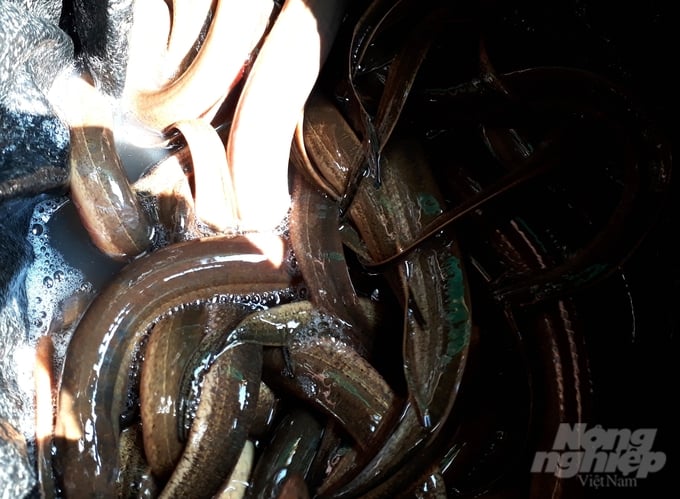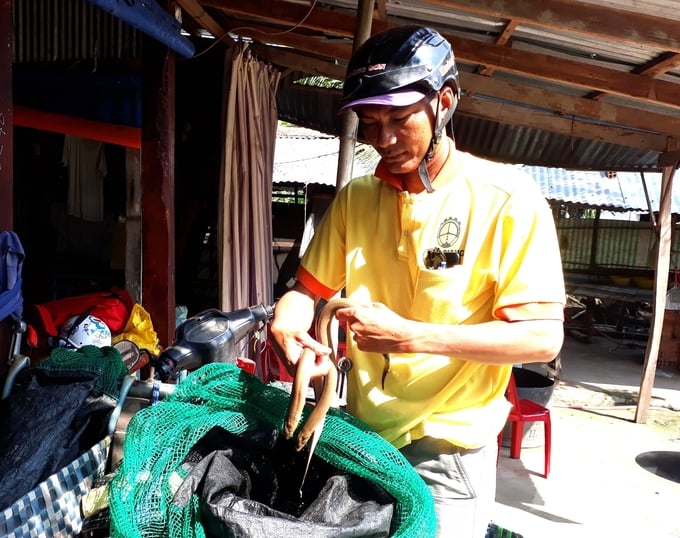The price of eel meat suddenly increased again, bringing the price of grade 1 eel to 100,000 VND/kg, but this price is still lower than the production cost so farmers have not yet escaped losses.

The meat eel market in many provinces and cities in the Mekong Delta is gradually warming up as the price of commercial eels raised without mud using industrial pellets has increased from 15 000 – 20 000 VND/kg, compared to about 1 month ago. Accordingly, the price of grade 1 meat eels, selected size 4-5 fish/kg, yellow skin, purchased by traders at the farming tank ranges from 100 000 – 105 000 VND/kg. Harvested eels are sold in buckets at 90 000 – 95 000 VND/kg.
Mr. Cao Van Be, a longtime eel farmer in Giong Rieng district, Kien Giang province, said that although the price of eel meat has increased again, it is still lower than the production cost of about 5 000 – 10 000 VND/kg, so farmer has not escaped losses yet. According to Mr. Be, for the model of raising mud-free eels with industrial feed, to reach a size of 200g/eel, it must be raised for at least 10-11 months, with an average cost of about 110 000 VND/kg.
Currently, the price of grade 1 eels, 4-5 pieces/kg, purchased by traders ranges from 100 000 – 105 000 VND/kg. Although prices have increased again, farmers have not yet escaped losses. Photo: Trung Chanh.
In many provinces and cities where eel farming is thriving, such as Can Tho, Vinh Long, Dong Thap, Kien Giang, and Hau Giang, in the past year, the price of eel meat has dropped sharply, at one point to only 70 000 – 75 000 VND/kg, down about 50% compared to the first months of 2023. At this price, farmers suffer heavy losses. Many households had to reduce stocking density, and did not even dare to invest, hanging tanks waiting for prices to increase again.
In recent times, eel farming has developed strongly in the freshwater provinces of the Mekong Delta. Especially since the outbreak of African swine fever, small-scale livestock farmers have switched to aquaculture, taking advantage of the pig barns to renovate them into mud-free eel farming tanks. The number of farming households has increased sharply, causing supply to exceed demand, while the eel export market is very limited, mainly for domestic consumption, so goods are flooded and difficult to sell. Some households switched to processing dried eels and eel floss, but not many. Some households switched to processing dried eels and eel floss, but not many.
D.T.Chanh

